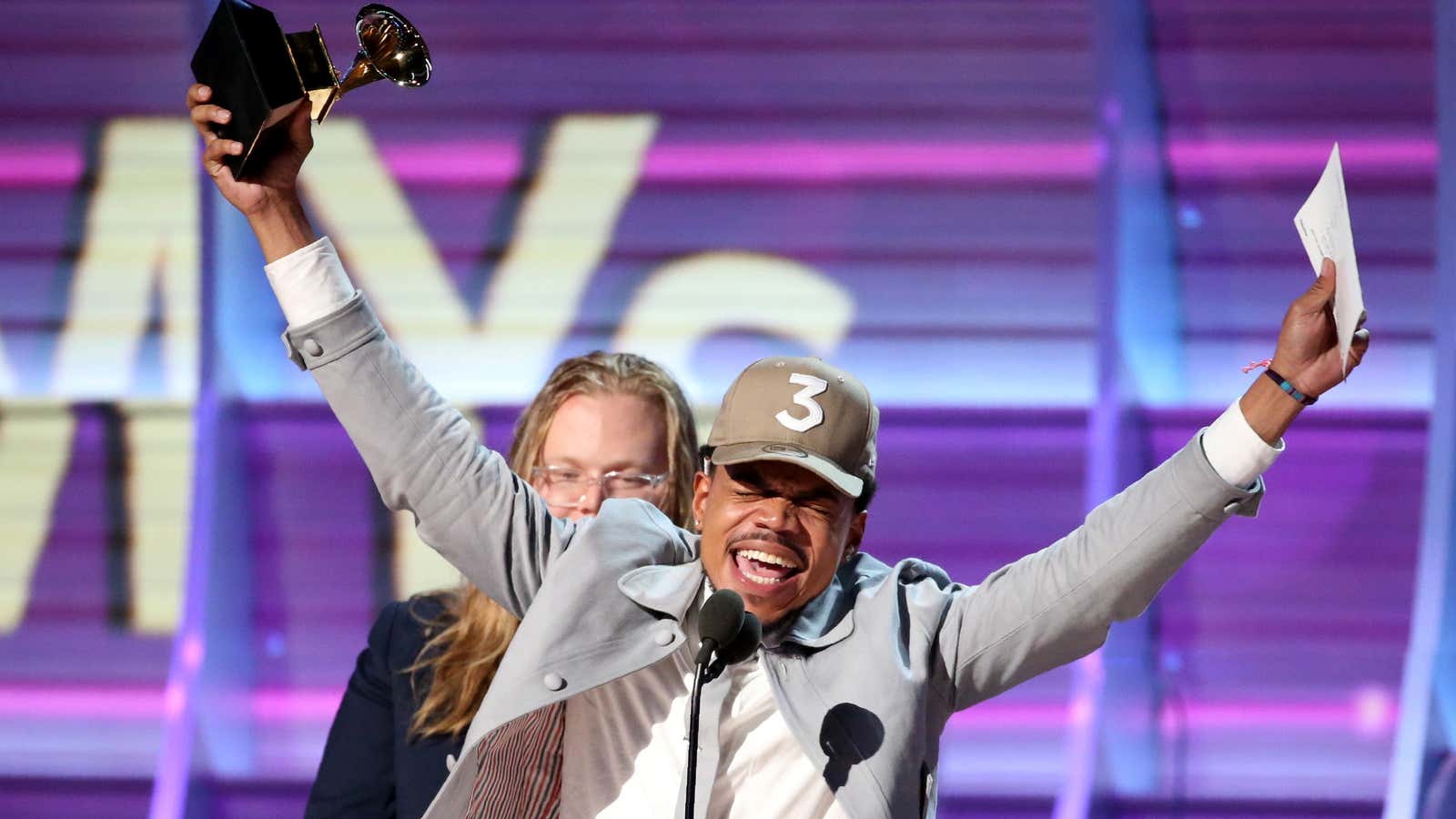Beyoncé may have serenaded the world in pregnant glory at the 59th annual Grammy Awards yesterday, but the greatest feat of the hours-long, glitter-bombed music spectacle was more subtle: Chance the Rapper’s three wins.
Chance, last night, became the first artist to win a Grammy without selling physical copies of his music—or selling much of his music at all, for that matter. The 23-year-old rapper from Chicago has built up a singular reputation for remaining unsigned to any record label and for dropping his songs online for free. (He was the first to be nominated from such a background, too.)
His three wins—best new artist, best rap album, and best rap performance—wouldn’t have even been possible if the Grammy’s governing board hadn’t relaxed their rules last year to allow for the nomination of albums only released on streaming services like Spotify and Apple Music.
“This is for every indie artist!” Chance shouted jubilantly on the Grammy stage, after winning best rap album for his May 2016 gospel-infused hip hop mixtape Coloring Book.
That particular win is all the more magnificent when considering who the rapper was up against in the category: Kanye West’s The Life of Pablo, Drake’s Views, and DJ Khaled’s Major Key were also nominated. All those albums were backed—and heavily marketed—by major record labels; Chance released Coloring Book on his own with no promotion.
With neither a record label contract nor any physical album sales, Chance hinges his finances off of the meager payouts from digital streaming. Yet the rapper doesn’t care about missing out on lucrative profits. He explained why in a recent Vanity Fair interview:
After I made my second mixtape and gave it away online, my plan was to sign with a label and figure out my music from there. But after meeting with the three major labels, I realized my strength was being able to offer my best work to people without any limit on it.
I make money from touring and selling merchandise, and I honestly believe if you put effort into something and you execute properly, you don’t necessarily have to go through the traditional ways.
He sells the “3” hats he’s always pictured in, for example. And those are backordered with a three-week wait.
Remaining unsigned, Chance has said in previous interviews, also allows him to collaborate more freely with other musicians and build up an authentic fan base. While his business strategy may be “in uncharted territory,” it’s piquing the interest of longtime industry executives—enough so that “they’re almost like, ‘keep going,’ ” curious to see what his unusual model might mean for the future of music.
Chance’s insistence on keeping control over his music is not unlike the attitude of the late Prince, or of fellow tradition-breaking artist Frank Ocean, who spent years buying himself out of his label contracts. Incidentally, the former was honored by a star-studded tribute at last night’s Grammys; the latter chose to angrily boycott the awards, altogether.
